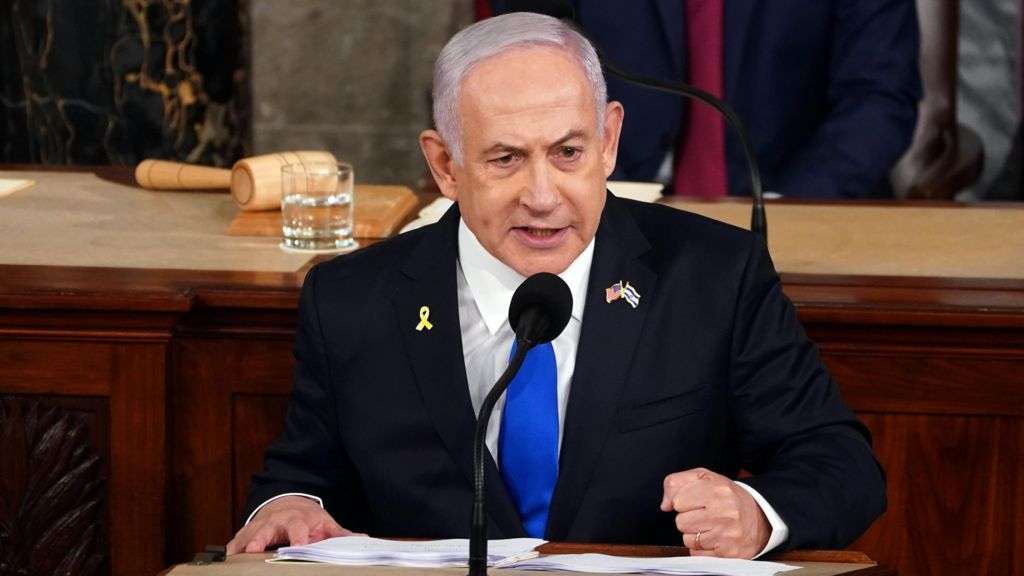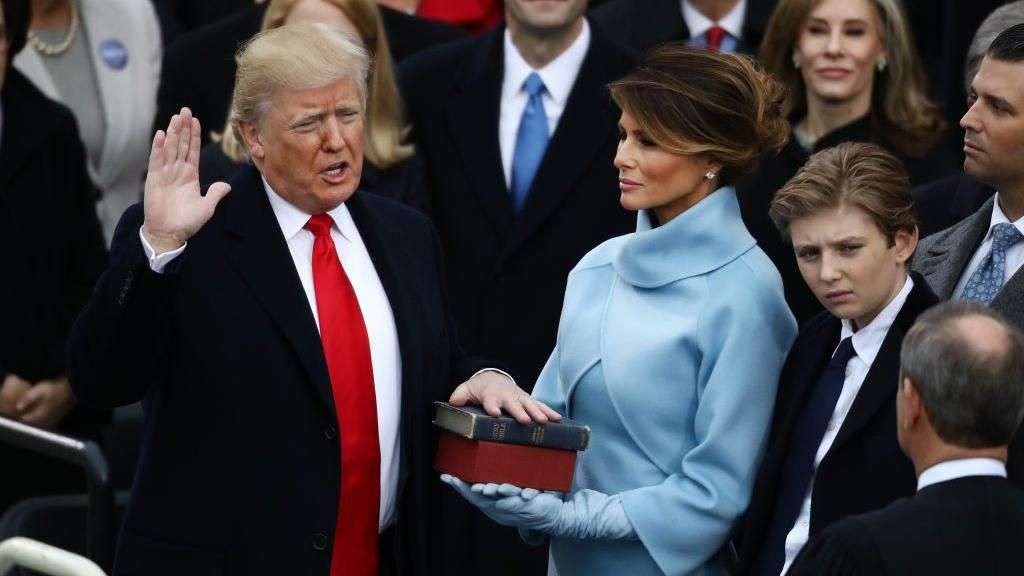The UK government has dropped plans to challenge the right of the International Criminal Court (ICC) to seek an arrest warrant for Israeli Prime Minister Benjamin Netanyahu.
In May, the chief prosecutor of the ICC said there were reasonable grounds to believe that Mr Netanyahu bore criminal responsibility for war crimes and crimes against humanity.
The previous Conservative UK government had indicated it planned to make a submission to the court - having questioned the right of the prosecutor to apply for a warrant - but had not done so before the election.
Now, a spokesperson for the new Labour government has said it will not be making a submission, saying it is "a matter for the court".
A spokesperson for Prime Minister Sir Keir Starmer said: "I think you would note that the courts have already received a number of submissions on either side, so they are well seized of the arguments to make their independent determinations."
In addition to Benjamin Netanyahu, the ICC's chief prosecutor is also seeking arrest warrants for Hamas leaders Yahya Sinwar and Mohammed Deif, and Israeli Defence Minister Yoav Gallant.
Should the ICC proceed with the arrest warrants, the possibility could arise that Mr Netanyahu and Mr Gallant would be asked not to set foot on British soil, to avoid being arrested by the UK authorities.
The court has already authorised 70 similar submissions from other countries on the subject and is currently working through them.
Prof Yuval Shany, an expert on international law at Jerusalem’s Hebrew University, predicts it will take until the autumn for the court to look at all the submissions and give the prosecutor time to respond if necessary.
Asked if the UK's decision would make any difference, he said: “Of course, the fact that a major country such as the UK has decided in the end not to submit is something that the judges will take note of.
“But the court still has to undertake the legal analysis regarding the questions that the previous [UK] government wanted to raise.”
He says the decision gives an indication of how the UK would react if the ICC were to issue arrest warrants for Benjamin Netanyahu and his defence minister Yoav Gallant.
“It would be difficult for the UK government, after deferring to the court… to simply shirk off and say I’m not going to implement it.”
A key issue at stake is whether the ICC can exercise jurisdiction over Israeli nationals, in circumstances where the Palestinian Authority can not exercise criminal jurisdiction over Israeli nationals under the terms of the Oslo Accords - a peace agreement in 1993.
In 2021, one of three ICC judges ruled the court could not exercise jurisdiction over Israelis, while two others ruled that this could be decided at a later stage.
Ahead of the UK's announcement, media outlets in Israel quoted a senior official as saying such a UK decision not to make a submission would be "fundamentally wrong", adding that it “distorts justice and truth, and violates the right of all democracies to fight terrorism".
Sacha Deshmukh, Amnesty International UK's chief executive, welcomed the UK's decision, calling the previous government's plan "totally misguided".
"Instead of trying to thwart the ICC's much-needed Palestine investigation, the UK should be backing efforts to bring all perpetrators of war crimes and possible genocide to justice."
The war in Gaza has proved to be politically tricky for Labour, with its stance upsetting many of its traditional supporters, particularly in the Muslim community.
In the recent general election, shadow minister Jonathan Ashworth lost his Leicester South seat to a strongly pro-Gaza candidate, while other senior party figures including Wes Streeting and Jess Phillips saw their majorities slashed.
Last week the government announced it was restoring funding to Unrwa, the UN's agency for Palestinian refugees.
The UK had previously halted donations after Israel alleged 12 Unrwa staff were involved in the October 2023 attacks by Hamas.
An internal UN investigation into allegations related to that attack is ongoing.
But a separate UN review, published in April, found Israel had not provided evidence for its claims hundreds of Unrwa staff were members of terror groups.








